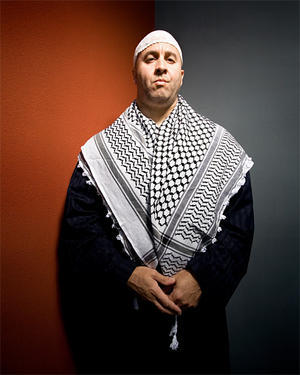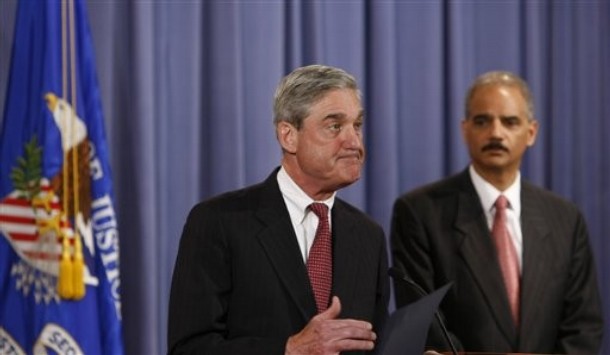Podcast: Play in new window | Download
Updates:
- Lynne Stewart Visit in Prison
- Write to Lynne: Lynne Stewart / MCC-NY / Prisoner # 53504-054 / 150 Park Row 100007, NY, NY
- Jeffrey Luers – SUV Burning Case – 22 year sentence
- NLG Report State Level Versions of AETA – Beyond AETA (PDF Report/White Paper)
- Green is the New Red
- Guantanamo Moves to Ilinois: Crossing the Rubicon: Preventive Detention
WBAI Listeners Click Here For Rundown on Tito Gerassi
———–
Lawyer’s You’ll Like: Rhonda Copelon Part II
This is the second part of our Lawyers You’ll Like interview with attorney Rhonda Copelon. She is a professor at the Law School of the City University of New York and director of the school’s International Human Rights Law Clinic. Rhonda is also the Legal Advisor to the Women’s Caucus for Gender Justice. Rhonda shares with us, her history of fighting for the constitutionality of the abortion cases in New York City and its effect on poor women in a pre-Roe v Wade climate. She also discuss the Harlem 6 case. Let’s have a listen.
From Article on New International Criminal Court: “The breadth and specificity of gender crimes in the court’s enabling statutes are directly attributable to a global caucus of women that formed in 1997 in the face of apathy and active resistance to prosecuting gender-based crimes. “Women made a huge difference,” said Rhonda Copeland, a professor at the Law School of the City University of New York and director of the school’s International Human Rights Law Clinic.
“They made it impossible to ignore that women have been left out of justice and that we have to be in it,” Copeland said. “If there were nobody there saying ‘this is violence,’ I don’t know how it would have happened.”Rhonda shares with listeners, her history of fighting for the constitutionality of the abortion cases in New York City and its effect on poor women in a pre-Roe v Wade climate. She also discuss the Harlem 6 case.
Rhonda Copelon:
- Harris v McRae – Rhonda Copelon argued. The case tried to get the federal government to pay for poor women’s abortions. We didn’t go to court to get medicaid for women, we went to court to save it.
- McRae has become a 2 line footnote in text books today and there’s a certain way that people have accepted that medicaid doesn’t have to pay for abortions
- 30 years is enough campaign.
- The more these terrible precedents come down, the more we absorb them as culture instead of viewing them as needing to be reversed.
- Historically, based on race and class, women have been treated differently in terms of their reproductive rights.
- When the original anti-abortion laws started to come in to the United States, it was primarily wanting to be sure that the white population of the US would not be out reproduced by the immigrant population and the way to do that was to cut back on abortion.
- The anti-abortion law, the original purposes was to increase reproduction among the elite and also to get rid of those women lay-healers.
- The original abortion laws were class based. In 20th century, class based eugenics laws, sterilization laws. Buck v Bell / you sterilize those who are socially inappropriate.
- Puerto Rican sterilization program. Before Roe v Wade, you couldn’t get a legal sterilization without the rule of 120.
- Religion twisted this around. The Catholic church in the mid 70s – a pastoral plan for pro-life activities.
- The goal was a human right amendment, which was a complete prohibition on abortion. Affecting poor women dependent on tax payer money.
- There’s a lot of evidence that the church went along with family planning in poor neighborhoods in the 60s because it had a population reduction role.
- When you get to abortion, they put the political / religious ahead of the population goals, and what you get is this mobilization to stop medicaid funding for poor women.
- In 1978, you had a historic coming together of the Catholic church and the Protestant evangelicals on the issue of abortion.
- It’s very important to look at the role of extremist religion in this country. When you look at the mega-churches, the power they’ve had to undo the first amendment, in terms of establishment of religion.
- Hyde amendment: the cutoff of medicaid.
Guest – Attorney Rhonda Copelon, professor at the Law School of the City University of New York and director of the school’s International Human Rights Law Clinic. Rhonda is also the legal adviser to the Women’s Caucus for Gender Justice.
———
(Encore Interview:) FBI Defends Use of Informants To Spy On Mosques
FBI Director Robert Mueller defended the practice of using informants to monitor mosques in the United States, despite being heavily criticized by attorneys, and Muslim American leaders. Last month a judge ordered the FBI to submit 100 documents detailing the bureau’s surveillance of Muslim leaders in California, which revealed the FBI paid informants to be provocateurs. These cases fit into patterns where paid informants (often a former felon) entice innocent people into a crime, not unlike the Liberty 7 case, the Fort Dix case and the Memorial Day weekend terror plot in upstate New York. In the New York case, Mike German, a former FBI agent of 16 years and now an attorney with the ACLU told Law and Disorder, they “could have wrapped up without making it seem like they’re saving New York City from this terrible destruction.” The media then reports the story which will often prop up the ongoing “War on Terror.”
Shakeel Syed:
- Council of Islamic Organizations sent a letter to Attny Gen. Eric Holder complaining about the FBI infiltration and harassment
- We are baffled at this time, there is a great deal of surplus of rhetoric by the current administration and a deficit at the policy level.
- When Mueller says the FBI will escalate surveillance of mosques and the Obama Administration is silent, that disturbs me.
- This is legal religious bigotry, Mueller is lying in regard to they’re not surveilling the mosques but only the suspected individuals.
- I have stopped using the word provocateur, I shuffle between using the word provocateur and predator.
- Those targeted have pending immigration and naturalization files or converting from H1 visa to resident visa.
- When our community was doing outreach with public officers, I was in the FBI offices during 2003-2005, and I realized then I was being tailgated.
- My phone was tapped on. A few times the phone automatically dialed the local police.
- My hope as a Muslim American is that good American people will stand up in these challenging times.
Guest – Shakeel Syed, Executive Director of the Islamic Shura Council of Southern California.
———————————————————–

